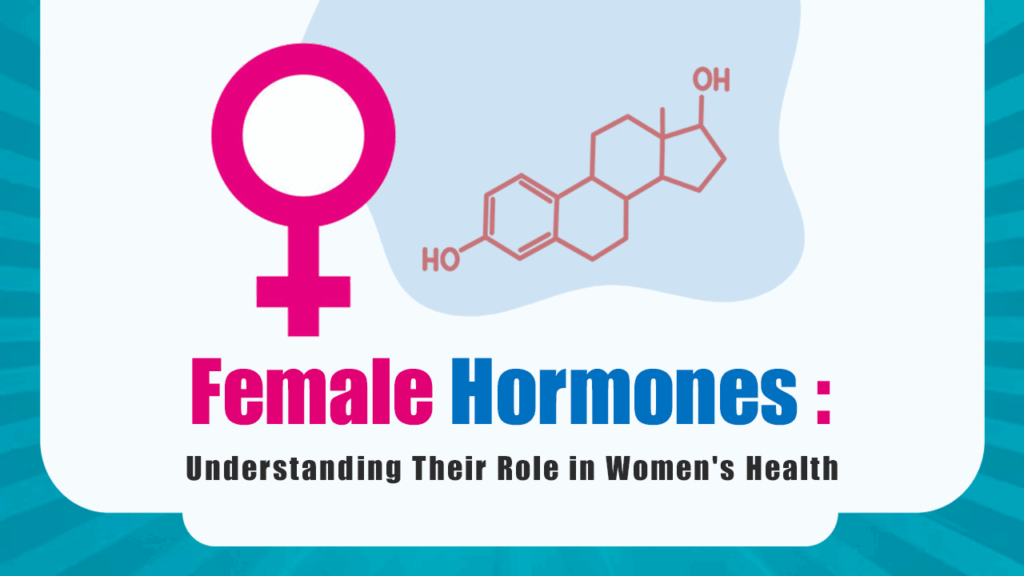Understanding Female Hormone Fluctuations
Fluctuating hormones are a relevant topic for all women. Hormonal changes occur naturally throughout life—surging during puberty and gradually declining with age. These fluctuations also happen during the menstrual cycle, pregnancy, perimenopause, menopause, and postmenopause.
Key Reproductive Hormones: Estrogen, Progesterone, and Testosterone
Estrogen
Estrogen plays a vital role in mood, energy, memory, and motivation. Higher estrogen levels can boost confidence and help build muscle more efficiently, making this a great time to engage in resistance training. Estrogen also acts as a mild appetite suppressant and increases willpower, often leading to lighter, healthier food choices.
However, as estrogen levels drop, mood may decline, and irritability or anxiety may increase. This decrease also lowers serotonin—the brain’s natural “feel-good” chemical—which can trigger cravings for carbohydrates and sugar as the body attempts to stabilize mood.
PROGESTERONE
Progesterone has a calming, sedative effect. As it rises, you may feel more physically tired and emotionally sensitive. It can increase appetite and cravings for high-calorie foods, and may also cause a drop in blood sugar—making regular meals important. Additionally, progesterone can slow digestion, contributing to bloating and constipation. Once progesterone levels fall, menstruation begins.
Testosterone
Although often considered a male hormone, testosterone is crucial for women. It supports muscle mass, bone strength, and libido. It may also increase feelings of impulsiveness or boldness.
Hormonal Changes Through Life Stages
Premenopause spans from the first period (menarche) through the reproductive years.
-
-
Estrogen rises after menstruation, peaks at ovulation, dips briefly, then rises slightly again before falling ahead of the next cycle.
-
Progesterone peaks after ovulation, then drops before menstruation.
-
Testosterone rises slightly just before ovulation.
Perimenopause is a transitional phase that can last up to 10 years. Hormones become more erratic:
-
-
Estrogen levels fluctuate unpredictably and gradually decline.
-
Progesterone production also decreases. This phase may bring increased anxiety, irritability, irregular cycles, weight gain, and hot flashes.
Menopause and Postmenopause
-
- Menopause marks the end of menstruation and fertility. Both estrogen and progesterone levels drop significantly. As these hormones decline, cortisol (the stress hormone) may rise, contributing to anxiety and an overactive “fight or flight” response.*
Check out The Hormone-Diet Connection for more information on cortisol.* The Hormone-Diet Connection: What You Eat Matters – E2M Fitness
What Affects Hormone Regulation?
–> Chronic Stress
Long-term stress elevates cortisol, which can interfere with estrogen production and keep levels low. This can cause:
–> Diet
A diet too high in calories, fat, or sugar can lead to weight gain and insulin resistance.
Conversely, not eating enough can disrupt estrogen and progesterone production.
Support hormone health by choosing:
-
A balanced diet of whole foods
-
Protein, vegetables, fruits, and high-fiber whole grains
-
Healthy fats such as those in nuts, avocados, olives, and fatty fish
-
Phytoestrogen-rich foods like flaxseeds, soybeans, and tofu
-
Anti-inflammatory omega-3 fatty acids from salmon, chia seeds, and walnuts
-
Minimal intake of processed foods, caffeine, and alcohol
–> Physical Inactivity
A sedentary lifestyle can contribute to weight gain and insulin resistance. Aim for at least 30 minutes of moderate activity most days to support hormone balance, manage weight, and improve mood.
Conclusion
Understanding how female hormones fluctuate throughout life—and how they affect your mood, energy, appetite, and overall well-being—is essential for making informed decisions about your health. By recognizing the natural shifts that occur during each life stage and adopting habits that support hormone balance—like managing stress, eating a nourishing diet, and staying physically active—you can feel more in control and better equipped to support your body through every phase. Small, consistent lifestyle choices can make a big difference in how you feel, both physically and emotionally.
